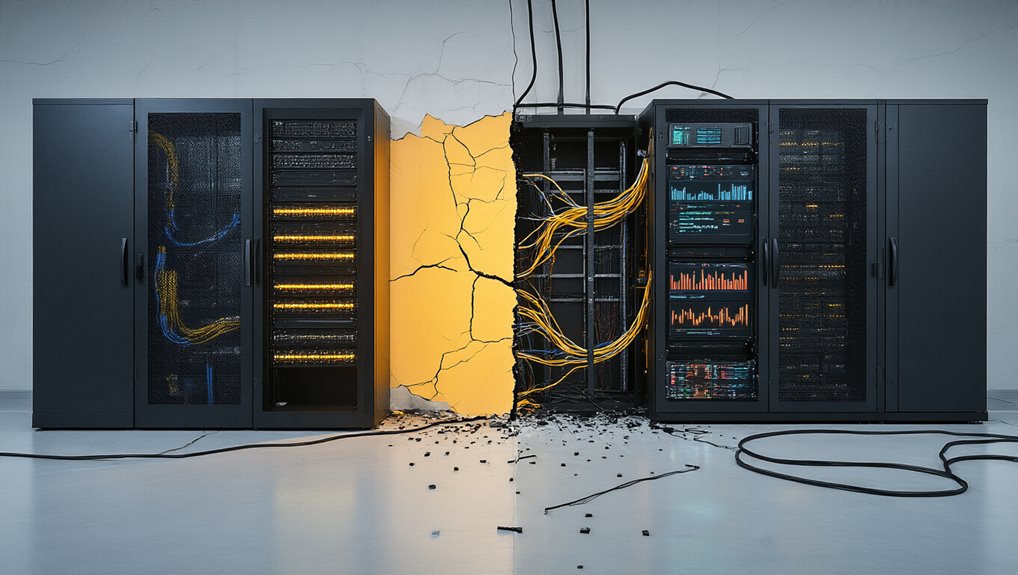While artificial intelligence adoption continues to surge in workplaces globally, trust in these technologies remains stubbornly low among the general public. Recent data shows AI implementation in businesses jumped markedly from 34% in 2022 to 71% in 2025, yet only 31% of Americans trust companies to use AI responsibly. This disconnect represents a considerable challenge for organizations implementing AI solutions.
The AI revolution races ahead in boardrooms while public trust lags dangerously behind
The statistics paint a concerning picture. Nearly 41% of Americans express “not much” trust in businesses’ AI practices, while 28% report no trust whatsoever. Only a tiny fraction—just 3%—indicate they trust businesses “a lot” regarding AI implementation. This trust deficit persists despite increasing familiarity with AI technologies in everyday life.
A peculiar paradox has emerged as AI becomes more common. Greater exposure to AI technologies hasn’t built confidence but instead has often diminished it. As employees and consumers interact more with AI systems, they become more aware of both benefits and limitations, which can reinforce skepticism rather than alleviate it. Confidence in AI companies protecting personal data has dropped to 47% in 2024, further eroding public trust. This skepticism is particularly pronounced among younger Americans, who show higher levels of concern about AI’s total impact compared to older generations.
Fear factors prominently into public perception. Approximately 61% of Americans remain fearful of self-driving vehicles, with only 13% expressing trust in autonomous transportation. This specific example illustrates the broader hesitation toward AI-powered decision-making in critical contexts.
The perceived balance of harm versus benefit remains cautious. By 2025, 57% of Americans believe AI does equal amounts of good and harm—up from 50% in 2023. Only 12% believe AI does more good than harm, while 31% see AI as chiefly harmful.
The gap between expert and public opinion is striking. While 56% of AI experts expect positive long-term impacts from these technologies, only 17% of the general public shares this optimism. This disconnect highlights the communication challenges facing the AI industry as it works to build trust while technology adoption accelerates.
You can see this trust gap reflected in regulatory attitudes as well. Support for AI regulation has grown considerably, with 74% of U.S. local policymakers now advocating for stronger oversight—up from 56% in 2022.









